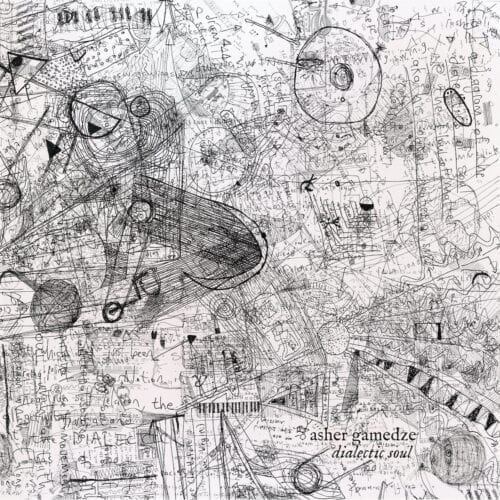Both a self-assured progressive, and eager to perpetuate his ancestral culture, South African drummer Asher Gamedze says he is exploring “the dialectic of the soul and the spirit as it moves through history”. Quite a programme! The musician’s commitment is equalled only by the proposal offered here: Dialectic Soul is nothing less than a major contribution to jazz conceived in contemporary Africa. Of course, the gospel tunes mixed with Zulu and Xhosas inflections are honoured, as they have been since the beginnings of South African jazz, in the era of Abdullah Ibrahim (Dollar Brand), Dudu Pukwana, Hugh Masekela, Johnny Dyani, Chris McGregor and… no, Asher Gamedze doesn’t do as the founding fathers of modern jazz in South Africa did. Clearly, he has studied the golden age of contemporary jazz (1958-1967) and Western classical music, adding them to the achievements of Southern Africa.
On the jazz side, the dominant influence is the legacy of Ornette Coleman, taken up notably by his colleagues Charlie Haden, Ed Blackwell, Don Cherry, and Dewey Redman in the group Old And New Dreams, or by the superb Still Dreaming project recently conducted by Joshua Redman. The approach promises to be Ornettian first for its similar instrumentation: Asher Gamedze, drums, Thembinkosi Mavimbela, double bass, Buddy Wells, tenor saxophone, Robin Fassie-Kock, trumpet, to which the singer Nono Nkoane sporadically joins in, taking us back to her native country when she expresses herself.
This music is Ornettian also for the space invested: despite the density of the concept, Dialetic Soul remains flexible, airy, and dodges any headaches. Tending towards atonal and textural explorations, the melodic lines deployed here mix with South African ones and produce a de facto new amalgam. Because to this day, very little acoustic jazz (or none at all?) emanating from the African continent has gone beyond post-bop, post-modal integrations. Let’s not go any further with comparisons: Gamedze’s playing is closer to that of Brian Blade than to Billy Higgins or Ed Blackwell. As to brass and winds, count on impeccable techniques and distinct sounds, especially from the tenorman Buddy Wells.
More investigation will be needed before concluding that there’s a new scene on the scene in the current jazz revival, beyond the initiatives in London, lower California, Chicago, and New York. But… just what is going on in Cape Town, anyway?!
























